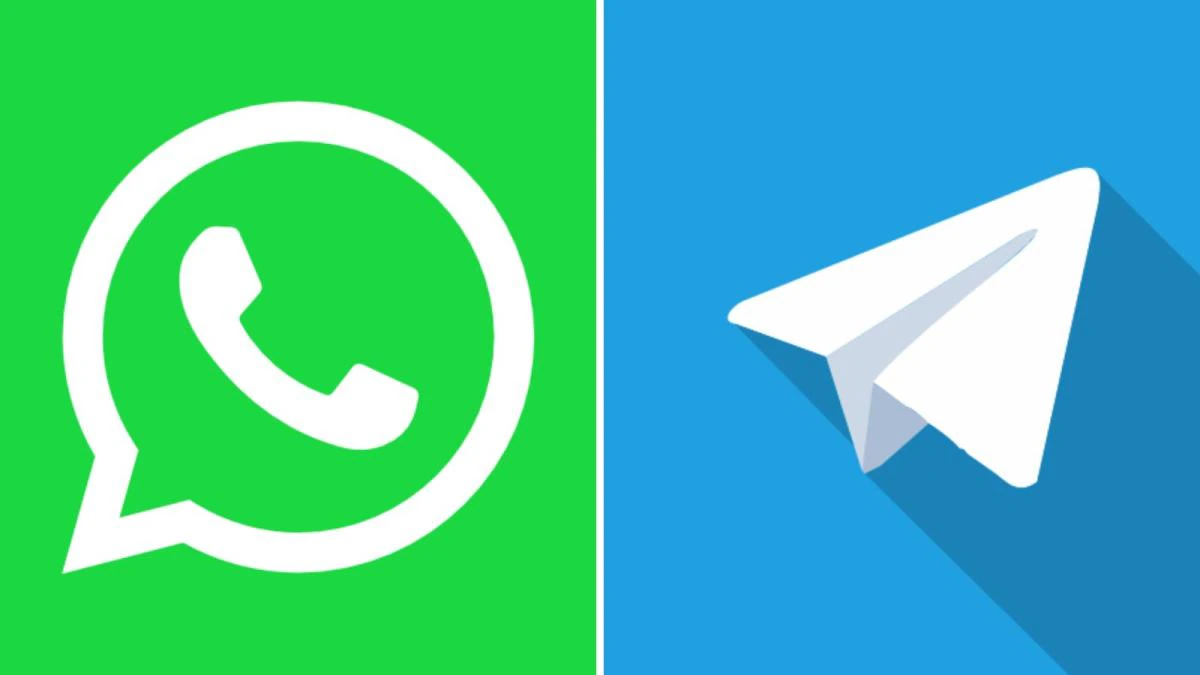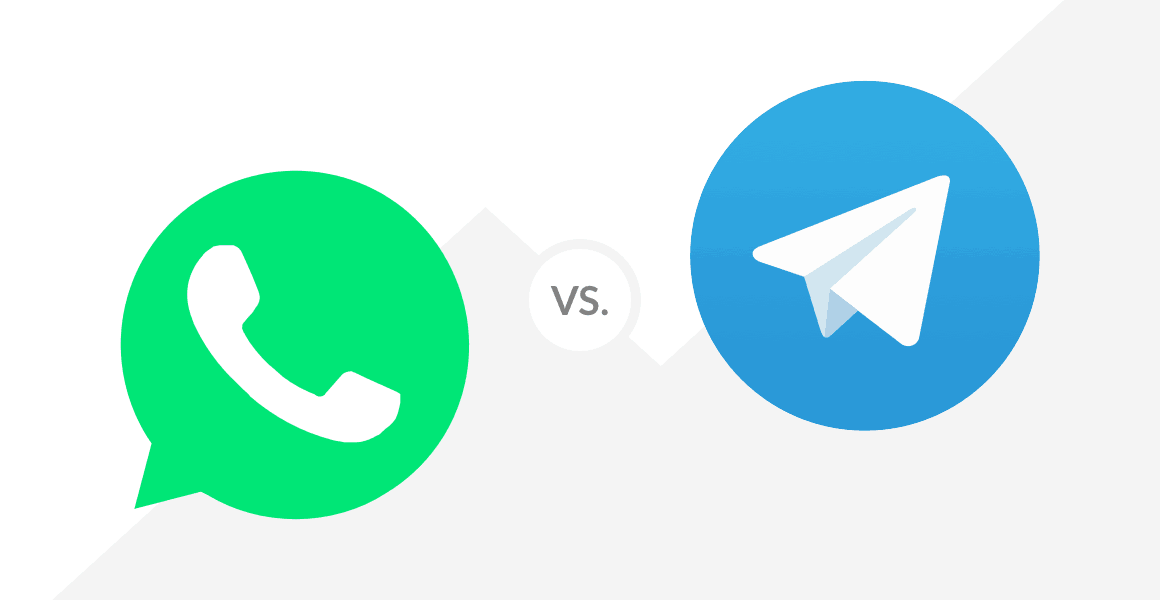The messaging app has evolved dramatically, with WhatsApp and Telegram emerging as the two dominant platforms competing for user attention in 2025. With over 2.7 billion monthly active users, WhatsApp continues to reign as the world’s most popular messaging platform, while Telegram has experienced explosive growth of 367% over the past five years, attracting users who prioritize privacy and advanced features.
Both platforms have introduced groundbreaking features throughout 2025, fundamentally changing how we communicate digitally. WhatsApp has rolled out 12 new features, including chat locks for individual conversations, voice message transcription, and AI-powered chat summaries, making everyday communication more secure and efficient. Meanwhile, Telegram has strengthened its position as the go-to platform for private messaging, offering end-to-end encryption, massive file sharing capabilities, and groups supporting up to 200,000 members.
The choice between these messaging giants isn’t straightforward. While WhatsApp excels in user-friendly design and widespread adoption, Telegram offers superior customization options and advanced privacy features. Business users face an even more complex decision, as each platform provides distinct advantages for customer communication, marketing automation, and brand building. Understanding the nuanced differences between these platforms is crucial for making an informed decision that aligns with your personal or business communication needs in 2025.
Key Features Comparison: Innovation Meets Functionality

WhatsApp’s 2025 Feature Arsenal
WhatsApp has significantly enhanced its feature set in 2025, introducing capabilities that prioritize user privacy and convenience. The platform now offers chat lock functionality for individual conversations, allowing users to secure specific chats with fingerprint or face recognition. This feature addresses growing privacy concerns while maintaining the app’s user-friendly approach.
Voice message transcription represents another major advancement, converting audio messages to text automatically, perfect for situations where listening isn’t feasible. The platform has also introduced AI-powered chat summaries that highlight key points from lengthy group conversations, helping users catch up quickly on missed discussions.
Additional notable features include custom avatars and reactions, HD video sharing without quality loss, message pinning capabilities for up to three messages per chat, multi-account support for managing work and personal numbers, and scheduled messaging for time-sensitive communications. These updates demonstrate WhatsApp’s commitment to enhancing user experience while maintaining its signature simplicity.
Telegram’s Advanced Capabilities
Telegram continues to lead in file-sharing capacity, supporting uploads up to 2GB compared to WhatsApp’s 16MB video limit. The platform’s supergroups can accommodate up to 200,000 members, making it ideal for large communities and broadcast purposes. Telegram’s bot functionality remains unmatched, offering endless possibilities for automation, customer service, and interactive experiences.
The platform’s secret chat mode provides optional end-to-end encryption with self-destructing messages, giving users complete control over their privacy settings. Telegram also supports unlimited device synchronization and allows up to three accounts on a single device, providing flexibility that WhatsApp cannot match.
Channel analytics and broadcast capabilities make Telegram particularly attractive for content creators and businesses seeking to build large audiences without restrictions. The platform’s cross-platform compatibility, including Linux support, ensures accessibility across diverse user preferences.
Security and Privacy: The Ultimate Battleground
WhatsApp’s Security Approach

WhatsApp implements end-to-end encryption by default for all communications, including text messages, voice calls, and video calls. This automatic security feature ensures that every conversation remains private without requiring users to adjust settings or understand complex privacy configurations.
However, privacy concerns persist regarding data sharing with Meta (Facebook) for targeted advertising purposes. The platform collects metadata, including call logs and contact lists, which can reveal valuable information about user behavior and relationships. Despite encryption, this data collection has raised questions about privacy protection.
WhatsApp’s integration with business APIs provides secure communication channels for enterprises, particularly beneficial for financial institutions and healthcare providers who need to share sensitive information. The platform’s 87% user trust rate regarding security makes it a reliable choice for business communications.
Telegram’s Privacy Philosophy
Telegram offers two levels of encryption: standard cloud-based encryption for regular chats and optional end-to-end encryption for secret chats. This dual approach allows users to choose their preferred security level based on conversation sensitivity.
The platform’s self-destructing message feature in secret chats provides additional privacy protection, automatically deleting messages after predetermined timeframes. Telegram’s ability to hide phone numbers enhances user privacy and control over personal information sharing.
Unlike WhatsApp, Telegram doesn’t share user data with third parties for advertising purposes, positioning itself as a more privacy-focused alternative. The platform’s commitment to user privacy has contributed to its rapid growth, particularly among users seeking alternatives to Meta-owned platforms.
Business Applications: Marketing and Customer Engagement
WhatsApp Business Advantages
WhatsApp’s 2.2 billion global user base across 190+ countries makes it the most accessible marketing platform for businesses targeting international audiences. The platform’s Business API enables automated customer service, personalized communication, and secure transaction processing.
Business catalogs allow companies to create virtual storefronts showcasing products and services. The quick reply feature streamlines customer interactions with predefined responses for common queries, improving response times and customer satisfaction.
WhatsApp’s personalized communication capabilities address the 71% of customers who feel frustrated with impersonal shopping experiences. Rich media options, including images, audio, files, and clickable buttons, enable businesses to create engaging, customized messages that enhance customer experiences.
Telegram’s Business Potential

Telegram’s channel functionality allows businesses to broadcast information to unlimited audiences without restrictions. The platform’s bot ecosystem provides extensive automation possibilities for customer service, order processing, and interactive marketing campaigns.
Forward message features enable organic content distribution, amplifying reach effortlessly without additional marketing spend. Telegram’s built-in analytics tools help businesses track subscriber growth, message views, engagement rates, and link clicks for campaign optimization.
The platform’s group management capabilities support large-scale community building and customer engagement initiatives. Businesses can collaborate with niche influencers on Telegram to expand reach and boost visibility within specific target markets.
User Experience and Accessibility
WhatsApp maintains its advantage in ease of use and widespread adoption. The platform’s integration with phone contacts eliminates setup complexity, while its intuitive interface appeals to users of all ages. With 96% visibility score and ranking for over 2,100, WhatsApp dominates search visibility.
Telegram offers superior customization options and advanced features that appeal to tech-savvy users. The platform ranks for 1,779 with an 87% visibility score, indicating a strong but more niche market presence. Telegram’s multi-platform support and unlimited device synchronization provide flexibility that power users appreciate.
Final Verdict: Choosing Your Ideal Platform
The choice between WhatsApp and Telegram depends on your specific needs and priorities. WhatsApp excels for mainstream users seeking reliable, secure communication with maximum compatibility across their social and professional networks. Its default encryption, user-friendly interface, and massive global reach make it ideal for everyday messaging and business communications requiring broad audience access.
Telegram suits users prioritizing advanced features, privacy control, and customization options. Its superior file sharing, large group capabilities, and extensive bot ecosystem make it perfect for content creators, tech enthusiasts, and businesses building niche communities.
For business applications, WhatsApp’s larger user base and established business tools provide immediate market access, while Telegram’s advanced automation and broadcasting capabilities offer greater long-term growth potential for innovative marketing strategies.




